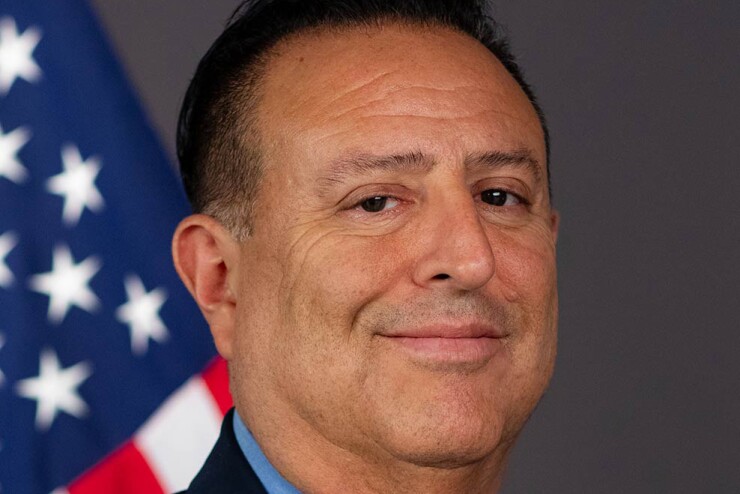SEC’s Sanchez: Conduit problems may provoke widely felt regulatory response
3 min read

Dave Sanchez, director of the Securities and Exchange Commission’s Office of Municipal Securities, said there’s a common theme in the municipal market when it comes to who’s defaulting, and that issuers should be paying attention for their own sake.
“It’s not true governments, it’s conduits,” Sanchez said in remarks to the Government Finance Officers Association’s Committee on Governmental Debt Management, which met on Saturday ahead of the GFOA’s 119th Annual Conference in Washington, D.C. Sanchez reminded the issuer officials on the committee, however, that it was those true governments that granted the conduits the ability to borrow money.
Sanchez reiterated his concerns regarding lax oversight of joint powers authorities by the state and local governments that created them. Such agencies, “which are generally not run by actual governmental folks, have the ability to borrow lots of money – billions of dollars,” he said. JPAs aside, governance concerns have surfaced with other types of agencies as well, he said, pointing to news relating to a
Even though such oversight issues aren’t directly related to what the SEC regulates, the reason they become indirectly related is those are the types of things that can cause problems in the market that ultimately may “result in a regulatory response,” Sanchez said.
As has been seen in the past, a lot of the regulatory push to make rules stricter on state and local governments “comes not because of the way you’re managing your own money and your own bonds, but the way you’re allowing other people to enter this market … with weaker credits, with weaker controls,” he said.
Sanchez said the GFOA’s debt committee in particular is a place where there could be discussion about what kind of controls are necessary to address the situation.
“And this might require individual legislative actions in your states or localities, but … these are the kind of things that can disrupt the market big picture,” Sanchez said. “But they’re within your control, they’re not within my control. We’re just going to see the secondary effects.”
One of the secondary effects is that when there are problems with this type of “potentially rampant and irresponsible borrowing … that’s when you see a push for more regulation on you specifically,” he told the debt committee.
Another concern Sanchez highlighted during his remarks was activity by unregistered municipal advisors.
“A lot of enforcement actions lately have been about that,” Sanchez said. “The
There are ways in which the issuer community can help when it comes to the issue of unregistered municipal advisors, Sanchez told the committee. For example, the SEC has seen instances, particularly surrounding public private partnerships or “a governmental project that’s maybe slightly afield of the direct finance borrowing,” where bidders have asked whether they needed to register as municipal advisors to perform the work.
“And the local government said no,” Sanchez said, adding that in one instance a local government said no because federal funding wasn’t involved.
“So again, it’s not your responsibility or your liability to register, but this is an area where …you should be educated that if you are asking folks to give you advice about using bonds or using something other than bonds, that generally speaking those folks who are doing that work should consider registering as a municipal advisor,” the SEC official told the debt committee.
“So, I would just encourage you not to give folks blanket ‘no’s,” Sanchez said. “At the very least tell them that they have to figure it out for themselves.”






